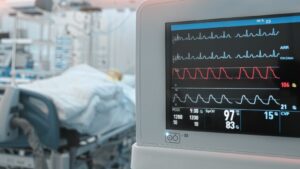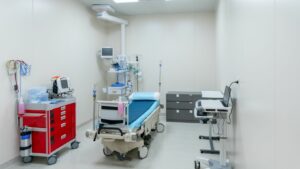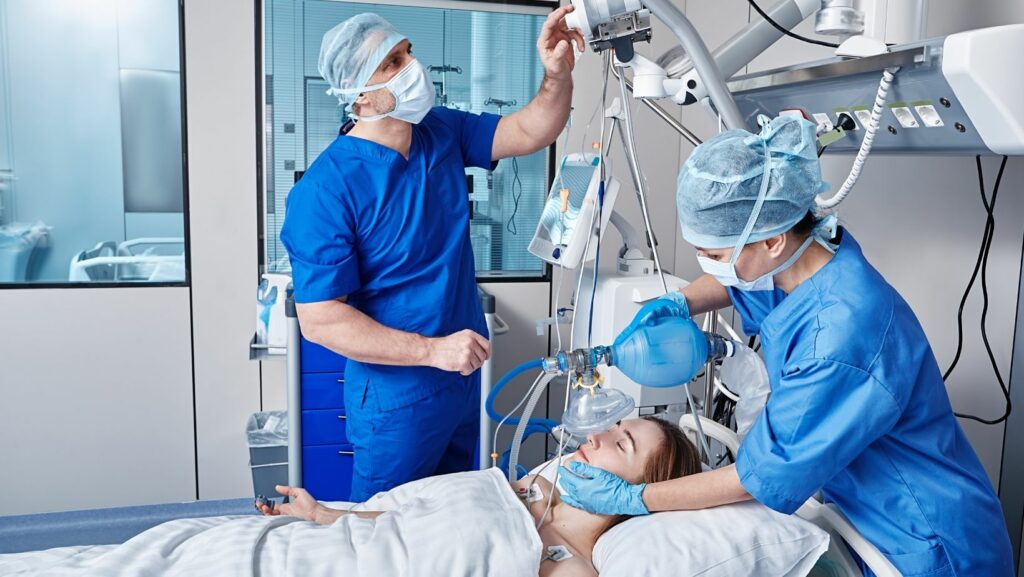In the fast-paced world of medicine, staying up-to-date with the latest in ICU medical news is paramount. It’s a dynamic field where breakthroughs and new research can revolutionize patient care. This article delves into the most recent findings, developments, and advancements in intensive care medicine.
Icu Medical News
In ICU medical news, there’s a steady influx of essential updates. Groundbreaking research reveals new diagnosis strategies, shedding light on potential therapy avenues. Next, there’s spotlight on the advanced ventilator technologies. Improved algorithms designed to personalize patient ventilation indicate a promising surge in patient survival rates.

Moreover, medical industries demonstrate robust progress on the drug development front. A notable achievement includes the FDA’s recent approval of Revcovi. This drug, designed to treat Adenosine Deaminase Severe Combined Immunodeficiency, creates significant positivity amidst life-threatening pathologies.
Lastly, increased usage of telemedicine solutions and remote patient monitoring technologies bears witness to the integration of digital health in ICUs. Tele-ICU solutions notably augment patient care, manifesting the power of technology within ICUs.
This overview encapsulates the dynamic and innovative strides occurring in ICU medical environments. Each update harbors promises of improved patient outcomes, testament to the relentless development in this critical medical institution.
Patient Care Innovations in the ICU
Continuing advancements in the ICU sphere have introduced innovative strategies for patient care. These innovations encompass four main areas: enhanced monitoring techniques, adaptive ventilator technologies, new medical protocols, and advanced drug therapies.
Enhanced monitoring techniques employ real-time data, enabling efficient patient management. Examples include tools like the Philips IntelliVue Patient Monitor MX800 that provide comprehensive real-time patient data.
Adaptive ventilator technologies like the Puritan Bennett™ 980 ventilator system tailor breathing support according to patient needs. This system combines clinical excellence with advanced technology, contributing to improved patient outcomes.

New medical protocols develop faster diagnosis processes. Rapid diagnostic tests for conditions such as sepsis increase the speed and accuracy of critical treatment plans.
Lastly, advances in drug therapies demonstrate growth in treatment options. As our previous section mentioned, the new FDA approved drug Revcovi revolutionizes treatment for severe combined immunodeficiency.
Collectively, these patient care innovations in modern ICUs signify an evolution in medical practices, pushing the frontiers of patient care for essential improvements in quality, safety, and outcomes.
Impact of Global Health Trends on ICU Operations
Emerging global trends shape ICU operations significantly. The recognition of antibiotic resistance, for instance, has prompted stringent protocols for antimicrobial stewardship in many ICUs. Meanwhile, the ongoing pandemic’s severe respiratory complications put a spotlight on ICU ventilator technology, catalyzing rapid advances. As a result, adaptive ventilator technologies are now front-line equipment in these modern units.
Also, the rise in chronic diseases, such as diabetes and hypertension, has added another layer of complexity to ICU operations. In response, several ICUs have introduced specialized care units, like cardiothoracic and neuromedical ICUs, to cater specifically to these subsets of patients. The introduction of tele-ICUs and remote patient monitoring systems, driven by the broader trend of digital healthcare, is another significant development.

These global trends have a far-reaching and important effect on all ICUs. They prompt a continual reassessment of protocols, practices, and processes, reinforcing the ongoing evolution of ICU operations worldwide.
Challenges Facing ICU Facilities Today
ICU facilities are at a critical juncture. They’re being shaped by new advancements and also challenged by emerging global health trends. With the rise in chronic diseases and the recent COVID-19 pandemic, the demand for efficient and specialized ICU care is higher than ever. Innovations like improved diagnostic strategies, advanced ventilator technologies, and the integration of telemedicine are not just trends, but necessities. These advancements are crucial in tackling antibiotic resistance and providing optimal care. As we move forward, it’s clear that the evolution of ICU protocols and practices will continue to adapt, ensuring the best possible patient outcomes. The future of ICU medicine lies in embracing these changes, and its continuous evolution is a testament to the resilience and adaptability of the healthcare sector.
